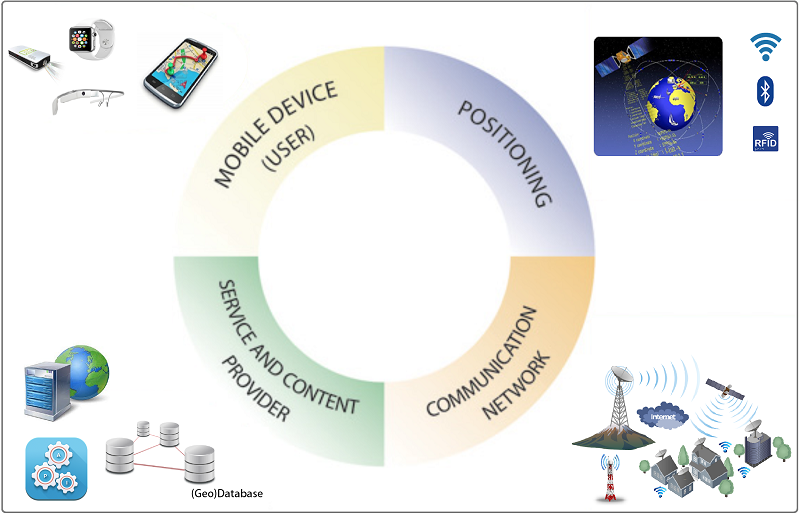MIS Handle Data from Location-Based Services

Management Information Systems (MIS) handle data from location-based services (LBS) in several ways:
Data Collection: MIS collect location-based data from various sources such as GPS devices, mobile devices, IoT sensors, and geospatial databases. This data includes geographic coordinates, addresses, points of interest, spatial boundaries, and other location-related information.
Integration with Business Processes: MIS integrate location-based data with existing business processes and workflows to support decision-making and operational activities. This may involve incorporating location data into customer relationship management (CRM) systems, supply chain management (SCM) systems, logistics systems, and field service management systems to optimize operations and improve service delivery.
Spatial Analysis and Visualization: MIS analyze and visualize location-based data using geographic information systems (GIS) and spatial analytics tools. This allows organizations to identify spatial patterns, trends, and relationships within the data, such as customer demographics, market segmentation, spatial distribution of resources, and proximity analysis.
Geocoding and Reverse Geocoding: MIS perform geocoding and reverse geocoding to convert between geographic coordinates and addresses or place names. This enables organizations to geotag data, map locations, and perform spatial queries based on proximity or spatial relationships.
Location-Based Marketing and Personalization: MIS leverage location-based data for targeted marketing campaigns, location-based advertising, and personalized services. By analyzing location data and user preferences, organizations can deliver relevant content, offers, and recommendations to customers based on their geographic location, interests, and behavior.
Geofencing and Location-Based Alerts: MIS use geofencing techniques to define virtual boundaries or geographic areas of interest and trigger location-based alerts or notifications when users enter or exit these boundaries. This allows organizations to send targeted messages, promotions, or alerts to customers based on their proximity to specific locations.
Route Optimization and Navigation: MIS optimize routes and provide navigation assistance based on location-based data to improve efficiency and reduce travel time for field operations, logistics, and transportation. This involves calculating optimal routes, avoiding traffic congestion, and optimizing vehicle routing based on real-time location data.
Location-Based Analytics and Insights: MIS derive actionable insights from location-based data to support strategic decision-making and business planning. This includes analyzing spatial trends, market penetration, site selection, and location-based competitive analysis to identify opportunities, mitigate risks, and optimize resource allocation.
Privacy and Security: MIS implement privacy and security measures to protect sensitive location-based data from unauthorized access, misuse, or disclosure. This includes anonymizing or aggregating location data to preserve privacy, encrypting data in transit and at rest, and implementing access controls and audit trails to monitor data access and usage.
Overall, MIS play a crucial role in handling and leveraging location-based data to drive operational efficiency, enhance customer experiences, support decision-making, and unlock new business opportunities across various industries and domains.
Thank you,
